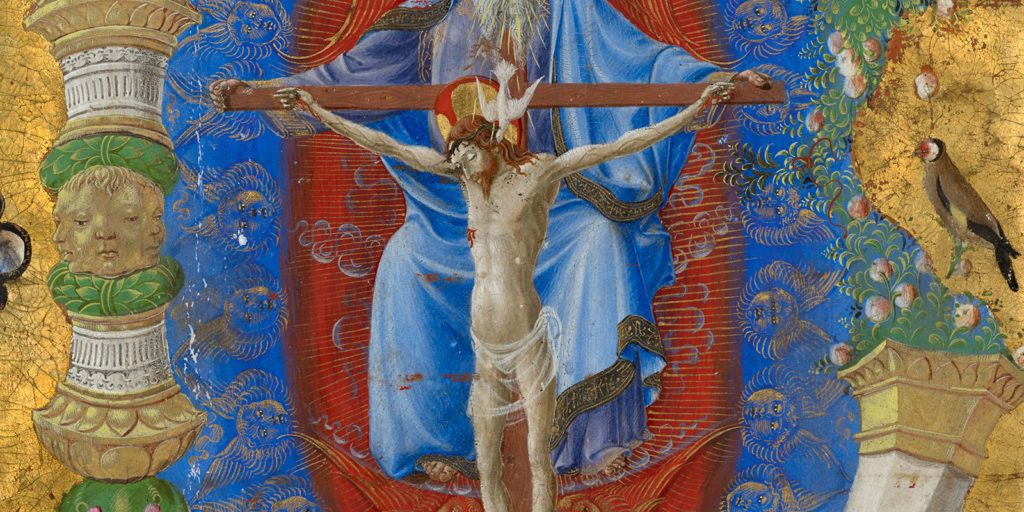
The Blessed and Only God: Part One
What comes to mind when you think of Paul’s first letter to Timothy? I’m willing to bet that for many of us “a manual on church life” might summarize our first thoughts. This is not an unfair description. It certainly seems to capture what Paul himself said was the purpose of his letter in 3:15-16, “I am writing these things to you so that… you may know how one ought to behave in the household of God.” The majority of this letter is dedicated to this theme which often dominates all our comments and applications from it. But in surveying the this landscape, we often miss an obvious and dominating landmark we can see from anywhere in this letter, yet often pass over with little attention. That landmark is Paul’s doctrine of God. Of course, the doctrine of God is present in all of Paul’s letters like a layer of bedrock or a tectonic plate that shapes and secures everything else in his teaching. But here in 1 Timothy, that bedrock erupts forming two grand vistas, two rich doxologies of God.
Both of these doxologies, the first in 1:17 and the second in 6:15-16, coming at the end of other blocks of teaching, are usually not close enough to the main point of the passage for preachers to give them anything more than a cursory nod and glance over the shoulder. But, in fact, it is these great landmarks that define the landscape, shape the weather patterns, and give points of reference to everything Paul says and everything Timothy must accomplish.
At the end of the day, the ultimate motivation for everything we do, in life or in ministry, should be God. As Paul says elsewhere, “whatever you do, do all to the glory of God.” That’s a pious thing to say. Its an easy thing to say, because it doesn’t really cost much. The fact of the matter is, our lips may say one thing but our hearts settle down and thrive on so many other things—including all the nuts and bolts of keeping the church running. Part of the problem, at the very least, is that we don’t dwell on, feast on, and savor the knowledge of God. Let’s be honest, the knowledge of God is a bit of an acquired taste. At first it seems too remote or intellectual, like a piece of classical music; but on closer inspection, after repeated exposure and listens, you pick up on the beautiful patterns, the intricate textures, the emotions and images that are provoked and brought to life by the melodies and harmonies, and a new world opens before you whose horizons fade away into an infinite expanse. Let’s stop name dropping Bach, Beethoven, and Brahms in order to sound smart, and actually take time to listen and savor the music.
Paul breaks out into these doxologies, these panoramic descriptions of God, because his own mind, soul, and heart is suddenly overcome by the glory of God. He can’t help but burst into praise. Can we walk away from this letter doing the same?
We’ll look at Paul’s rich portraits of God over the course of a four posts in four points; 1) The rich treasure of the church is the gospel of the blessed God; 2) The Blessed God who reigns above; 3) the Blessed God who comes below; 4) and finally, The Blessed God, Three in One.
The Rich Treasure of the Church is the Gospel of the Blessed God
Paul’s final admonition to Timothy is found in 1Tim. 6:20-21:
O Timothy, guard the deposit entrusted to you. Avoid the irreverent babble and contradictions of what is falsely called “knowledge,” for by professing it some have swerved from the faith. Grace be with you.
These parting words to Timothy nicely capture Paul’s personal message to Timothy. Paul uses a term here that he has so far not used, but which perfectly captures his view of the gospel. The gospel is a “deposit” entrusted to Timothy’s care. Paul has spoken repeatedly of the gospel in these terms. In 1:4, Timothy must “charge certain persons not … to devote themselves to myths and endless genealogies, which promote speculations rather than the stewardship from God that is by faith.” Here, “speculation” stands as the opposite of “stewardship.” Later Paul speaks of himself as being entrusted with the gospel which he now entrusts to Timothy, putting together 1:11 and 18, “the glorious gospel of the blessed God with which I have been entrusted …this charge I entrust to you, Timothy my child.” There we see clearly that the deposit entrusted to Paul and now Timothy is the “glorious gospel of the blessed God.” He is the good news, the reward, the treasure, the deposit we receive in the gospel. Share on X
There are two possible ways of translating this phrase. We might say, “the glorious gospel from the blessed God,” or it could mean, “the glorious gospel about the blessed God.” When it comes right down to it, both are true. The gospel is certainly from the blessed God. The gospel is not a speculation, something we come up with or discover or work toward. It is a fresh new word announced to us. But the gospel more than that. It is more than a bit of new information; it is the announcement of something God has done for us. The gospel is not a word of wishful thinking or an expression of good intentions; the gospel announces God has done something for us not just told us something.
There are two gospel summaries in this letter. The first in 1:16, “Christ Jesus came into the world to save sinners” and the second in 3:15-16, “great indeed we confess is the mystery of godliness: he was manifested in the flesh, vindicated by the Spirit, seen by angels, proclaimed among nations, believed in the world, taken up in glory.” These are summaries of what Christ has done for us; the gospel from God. But, of course, behind and above these statements about Christ and the gospel is the truth about God. What Christ has done flows out of who God is. If Paul’s doxologies in this letter are the shimmering, snow capped peaks; then these two gospel summaries are the deep alpine lakes collecting the snow melt and nourishing the mountain valleys below.
In that sense, when Paul speaks of the “glorious gospel of the blessed God,” he also is telling us that the good news of the gospel simply is the God we encounter there. He is the good news, the reward, the treasure, the deposit we receive in the gospel. The riches of the church is not our community life together, as important as that is, as central as it has been in this letter. The riches of the church is not just that we are a functioning and thriving household or assembly; but that we are the household and assembly of the Living God. That is what sets us apart. It is what Moses himself affirmed about Israel, that first household and assembly of God, “Is it not in your going with us, so that we are distinct, I and your people, from every other people on the face of the earth?”
What kind of God, then, is revealed in the gospel? The two doxologies that Paul provides in this letter define the contours of this God, but also various other statements scattered through the letter, like foothills to these great peaks, fill in the picture. In these next several points our goal is to first survey and climb these peaks, get a feel for the land; and then in our final point stand back and think about how these peaks effect the weather patterns of our lives.
*This is part one of a four part series on the Doctrine of God in 1 Timothy.

